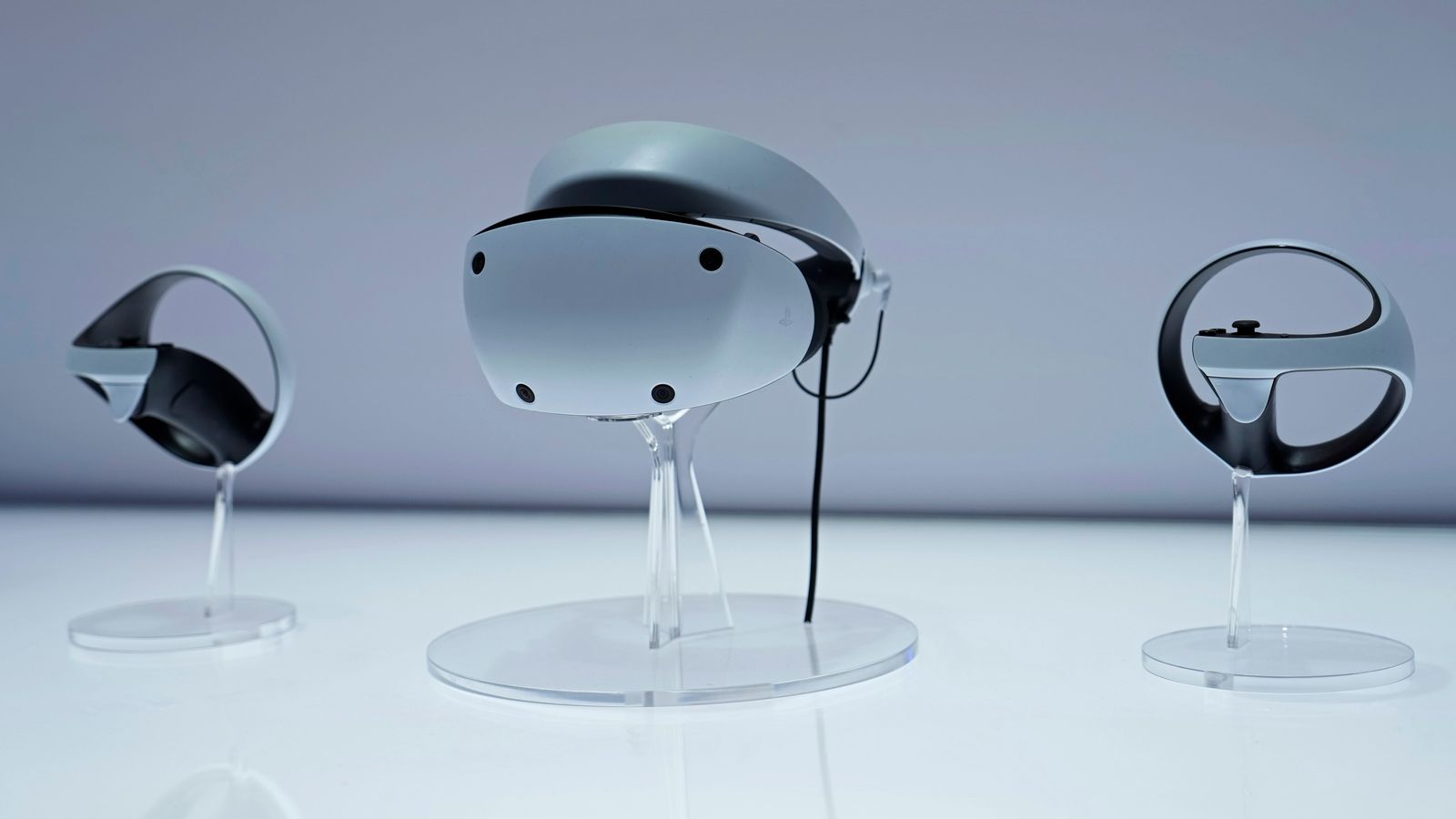Sony PlayStation is gambling on the appeal of VR to gamers with the launch of the new PS VR 2, Sony’s latest VR headset.
It is designed to work with the PlayStation 5, Sony’s next-gen console that’s been plagued with manufacturing delays due to chronic semiconductor shortages.
But with a £530 price point during a cost of living crisis, it remains to be seen whether there is demand for a product that only really appeals to a niche of players.
It’s no secret that PlayStation fans are usually willing to pay a premium price tag for their tech – but it still seems like a lot of money for those who already use a PS5.
During the pandemic ‘scalpers’ snapped up consoles and resold them for a sometimes hugely inflated price tag. They didn’t seem to have too much trouble selling on the PS5s then.
Investment Director at AJ Bell, Russ Mould, told Sky News: “As semiconductor companies ramp up supply, it will be interesting to see if VR launches, such as that from Sony, give demand another lift, although inflation and increases in the cost of living are a potential limiting factor.”
Stockists have been reporting steady supplies, possibly indicating that supply chain issues have finally been remedied.
Xbox boss says ‘there’s no silver bullet’ to solving online abuse – but outlines commitment to safety
Hogwarts Legacy: Why are people boycotting one of the biggest games of the year?
The Sims 4: Life simulation video game adds top surgery scars, hearing aids and binders to character choices
The premium price tag delivers premium tech. The PSVR 2 has a much higher resolution of 2000 x 2040 pixels per eye, compared to 960 x 1080 pixels per eye for the original model. This means that the images will be sharper and more realistic on the PSVR 2 .
The PSVR 2 features OLED displays instead of LED displays, which Sony say makes for truer blacks and more vivid colours.
OLED displays also have faster response times and lower latency, which reduces motion blur and nausea.
The addition of eye-tracking technology adjusts the focus and graphics based on where you look, and allows for more natural interactions and dynamic rendering, which optimises performance and quality.
Meta released its Quest 2 VR headset in 2020. There has been no competition from Xbox so far, despite rumours of one being in the works circulating for some time.
Former Meta employee and tech expert, Will Guyatt told Sky News: “When it comes to technical ability and horsepower, the new PS VR2 is literal miles ahead of Meta’s entire Oculus range, including the recently launched Pro headset – which costs almost three times as much.
Read more
Five big tech stories to watch in 2023
PlayStation being sued for £5bn
Xbox boss says ‘there’s no silver bullet’ to solving online abuse
“Sony’s diverse range of launch titles are not just showcases of the tech, they prove there’s a future in VR that’s improving every generation.”
The new model will launch with 37 VR-enabled games, with Horizon Call of the Mountain taking centre stage and building on the recently released Horizon Forbidden West.
Sol Rogers, Global Director of Innovation at Magnopus, a company which creates bespoke VR experiences for companies such as Disney, and Chair of the Immersive Entertainment Advisory Group for the BAFTAs believes the launch will “bring a new crowd”.
He told Sky News: “Demand for VR gaming is increasing as technology improves and the VR ecosystem expands, making it more accessible.”
And he pointed out that Apple will also be entering the VR market this year and is sure to launch with apps to accompany its hardware.
Sony is muscling in on an industry teaming with competitors, some of which include the Meta Quest 2: a standalone VR headset that can also connect to a PC and retails for £399.
Then there’s the HP Reverb G2, which costs £599- and the Valve Index: a high-end PC-based VR headset which comes in at £919.
The PSVR2 will be a litmus test for the level of discretionary consumer spend in the gaming industry, and the popularity of VR gaming. It will also focus minds at Microsoft as it prepares its rumoured Xbox competitor.
Either way, all hardware producers are betting on the VR market expanding – whether it does, only time will tell.






















